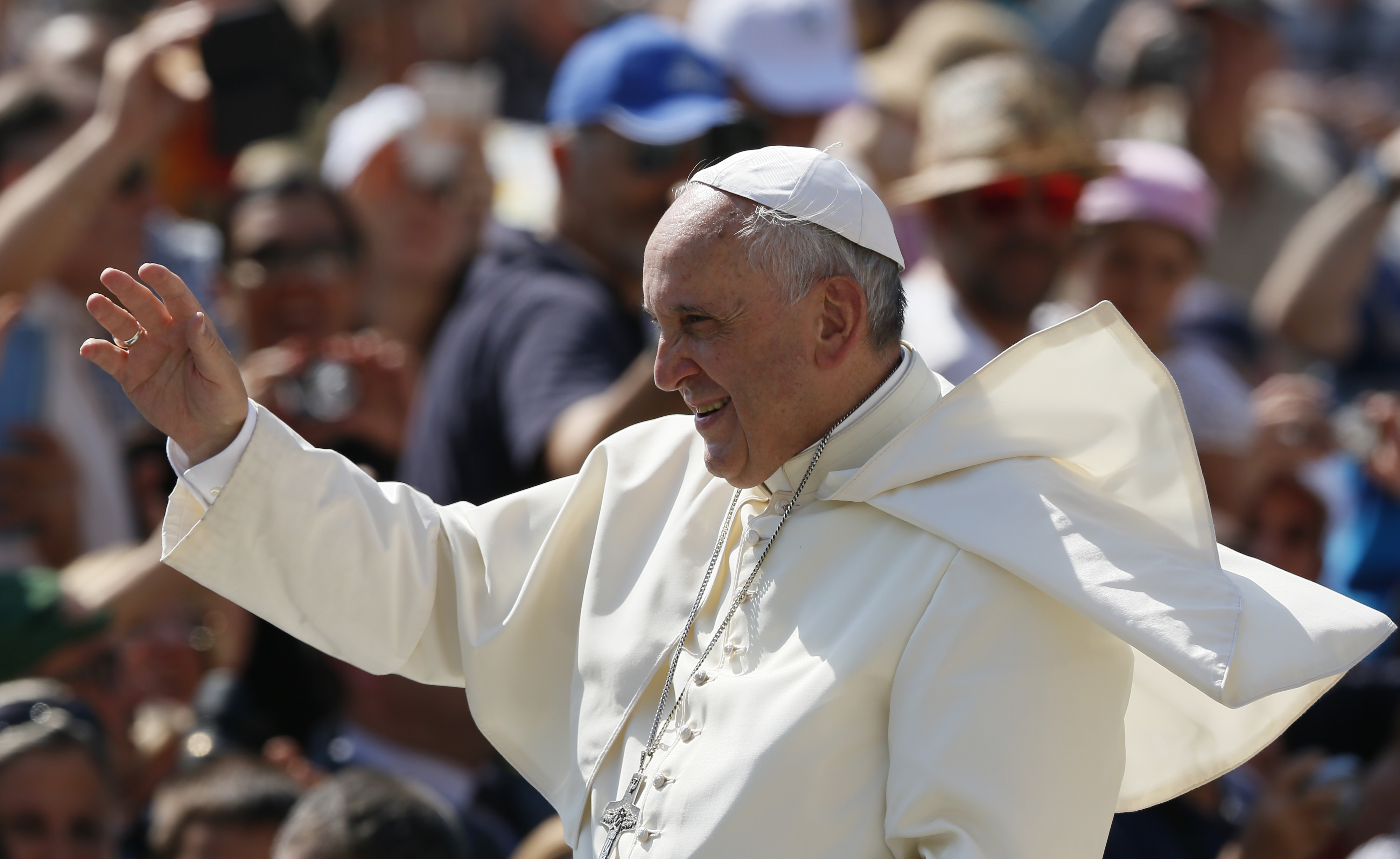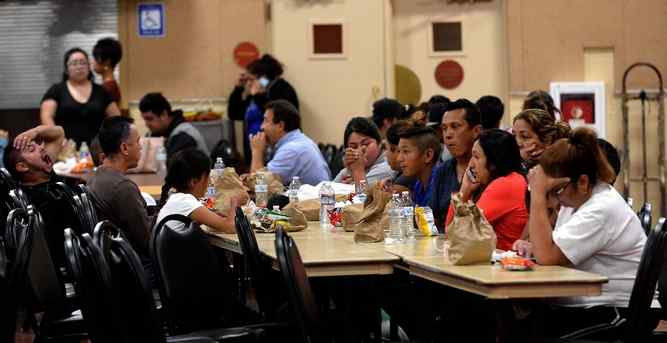Pope Francis Passes Away At 88: Reflecting On His Papacy

Table of Contents
A Humble Beginning: Pope Francis's Early Life and Rise to the Papacy
Jorge Mario Bergoglio, the future Pope Francis, was born in Buenos Aires, Argentina. His Jesuit background significantly shaped his worldview and his approach to leadership. His journey to becoming the Supreme Pontiff was marked by a deep commitment to service and a profound understanding of the struggles faced by the marginalized. Key moments in his rise included his appointment as Archbishop of Buenos Aires and later as a Cardinal. His reputation for humility, simplicity, and a profound dedication to social justice set him apart from his predecessors and ultimately contributed to his surprising election as Pope in 2013.
- Key Dates:
- 1936: Born in Buenos Aires, Argentina.
- 1958: Entered the Society of Jesus (Jesuit order).
- 1973: Ordained a priest.
- 1998: Appointed Archbishop of Buenos Aires.
- 2001: Created a Cardinal by Pope John Paul II.
- 2013: Elected Pope.
- Significant Roles: Before becoming Pope, Cardinal Bergoglio held several influential positions within the Church, including Provincial Superior of the Jesuits in Argentina and Archbishop of Buenos Aires. These roles provided him with invaluable experience in pastoral leadership and a deep understanding of the complexities of the Church.
- Humility and Social Justice: Even before his papacy, Bergoglio was known for his humble lifestyle and unwavering commitment to social justice, championing the rights of the poor and marginalized in Argentina.
Key Doctrinal Teachings and Encyclicals of Pope Francis
Pope Francis's papacy was marked by the publication of several significant encyclicals that addressed crucial contemporary issues. Laudato Si' (2015), focusing on environmentalism and integral ecology, and Amoris Laetitia (2016), addressing family and mercy, are two of his most influential works. These encyclicals, reflecting core Catholic doctrine, shaped the discourse on issues of global significance.
- Laudato Si': This encyclical calls for a radical shift in our relationship with the environment, emphasizing the interconnectedness of all creation and the urgent need to address climate change.
- Amoris Laetitia: This document offers a pastoral approach to family life, emphasizing mercy, compassion, and accompaniment for families facing diverse challenges.
- Impact and Criticisms: These teachings have significantly impacted the Catholic Church, sparking both widespread support and considerable debate within its ranks. Some traditionalist voices criticized what they perceived as departures from established doctrine.
Pope Francis and Social Justice: A Legacy of Compassion
Pope Francis's unwavering commitment to social justice is a cornerstone of his legacy. He consistently spoke out against poverty, inequality, and climate change, urging global leaders and the Church to prioritize the needs of the most vulnerable. His actions, from washing the feet of prisoners to visiting refugee camps, powerfully demonstrated his dedication to this cause.
- Specific Examples: His visits to marginalized communities, his calls for economic justice, and his outspoken criticism of globalization’s impact on the poor stand as clear examples of his dedication to social justice.
- Impact on Social Justice Movements: His pronouncements provided significant support and inspiration to social justice movements worldwide, bolstering their efforts to advocate for the poor and oppressed.
- Criticisms and Controversies: Despite widespread acclaim, his social justice initiatives sometimes faced criticism, particularly from those who viewed his stances as overly political or at odds with established Church teachings.
Pope Francis and Ecumenism: Building Bridges with Other Faiths
Pope Francis dedicated significant efforts to fostering interfaith dialogue and ecumenism, working towards building bridges with other religious traditions. His approach emphasized mutual respect, understanding, and shared commitment to peace and justice.
- Key Meetings and Events: His meetings with leaders from various faiths, including the Dalai Lama and the Grand Imam of Al-Azhar, showcased his commitment to interreligious understanding and cooperation.
- Significance of His Approach: His emphasis on shared values and common goals transcended theological differences, fostering genuine connections and paving the way for collaborative initiatives.
- Impact on Interfaith Relations: Pope Francis's actions significantly improved interfaith relations, promoting greater tolerance and mutual respect among diverse religious communities.
Challenges and Controversies During Pope Francis's Papacy
Despite his significant achievements, Pope Francis’s papacy was not without its challenges and controversies. Issues such as financial scandals within the Vatican and internal church conflicts required his attention and decisive action.
- Specific Examples: The handling of financial scandals within the Vatican and controversies surrounding internal church matters presented significant challenges to his leadership.
- The Church's Response: The Church's response to these challenges, while sometimes slow and imperfect, demonstrated a commitment to transparency and reform.
- Long-Term Implications: These controversies highlighted the need for continued efforts to address systemic issues and enhance accountability within the Church.
Conclusion: Reflecting on the Enduring Legacy of Pope Francis
Pope Francis's papacy leaves behind a complex and multifaceted legacy. His humble beginnings, his groundbreaking encyclicals, his tireless advocacy for social justice, his commitment to ecumenism, and his navigation of significant challenges have indelibly shaped the Catholic Church and the world. His unwavering dedication to the poor, his calls for environmental stewardship, and his efforts to build bridges among faiths will continue to inspire generations. His papacy undeniably represents a significant chapter in the history of the Catholic Church. Share your reflections on Pope Francis's legacy using #PopeFrancisLegacy. To learn more about Pope Francis's papacy, explore the resources linked below. [Insert links to relevant resources here].

Featured Posts
-
 Los Angeles Wildfires And The Gambling Industry A Concerning Correlation
Apr 22, 2025
Los Angeles Wildfires And The Gambling Industry A Concerning Correlation
Apr 22, 2025 -
 Cybercriminal Made Millions Targeting Executive Office365 Accounts
Apr 22, 2025
Cybercriminal Made Millions Targeting Executive Office365 Accounts
Apr 22, 2025 -
 Ukraine Faces Renewed Russian Aerial Offensive Us Peace Initiative In Play
Apr 22, 2025
Ukraine Faces Renewed Russian Aerial Offensive Us Peace Initiative In Play
Apr 22, 2025 -
 Metas Future Under The Shadow Of The Trump Administration Zuckerbergs Challenges
Apr 22, 2025
Metas Future Under The Shadow Of The Trump Administration Zuckerbergs Challenges
Apr 22, 2025 -
 La Landlord Price Gouging After Fires A Selling Sunset Stars Perspective
Apr 22, 2025
La Landlord Price Gouging After Fires A Selling Sunset Stars Perspective
Apr 22, 2025
